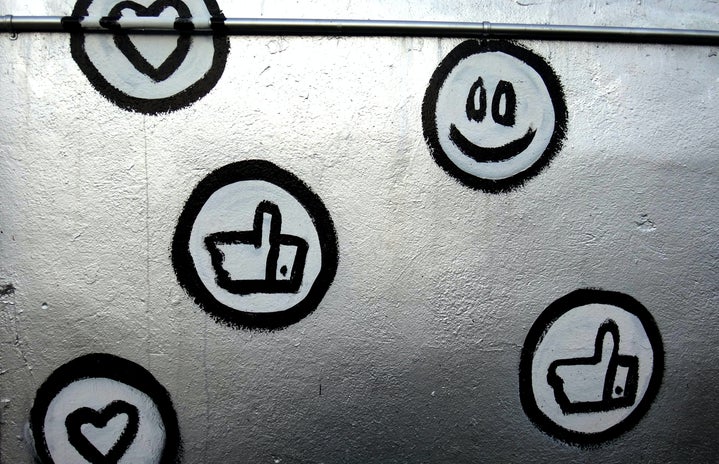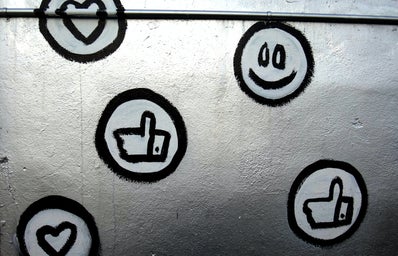One thing you unfortunately have to come to terms with as an adult is that colonialism—and neocolonialism, for that matter—is a permanent presence looming over everybody’s lives. When you’re part of a minority group (be it racial, ethnic, religious, or something else) from a country that at one point underwent colonialism, the sad reality is that you’ll probably be angry your entire life. Learning about the way the world has worked for hundreds of years and the fact colonial influences shaped some aspects of your very own culture will inevitably lead you to be filled with an all-consuming rage. Life is usually unfair for people like us. By no means do I wish to generalize the POC experience, but rather express some common ground we may all have. Processing this anger, and subsequently being able to deal with it in a positive, productive way is part of maturing as a person. Keeping it all bottled up won’t lead anywhere, so be the change you want to see in the world. Here are some ways you, too, can channel those feelings into something that will make the world suck a little less:
- Learn about your country’s history.
-
I was born and raised in the capital city of Panama, a country you might only know about because of the Canal, and I distinctly remember having no interest in learning about my own country’s history until I was in my senior year of high school. I was much more interested in world history than my own, which makes me very sad in retrospect. Unfortunately, the education system in most places doesn’t make an effort to turn learning into something interesting for young minds. On top of that, there are cases where the versions of national history these institutions teach are incredibly biased in favour of the colonizing powers—a bias you can’t really detect until you acquire the critical thinking abilities that usually accompany going into higher education.
These factors, however, are the main reason why it is so important to learn your country’s history as an adult. Do in-depth, multi-faceted research as often as you can because knowledge is the fastest way to reclaim your power. Grow to love your roots. Get acquainted with the way your past was shaped.
Ever since I moved to Canada 3 years ago, I’ve come to love and cherish my country and its rich culture even more than when I used to live there. I miss the things that were familiar and accessible to me back then. I really, truly love my country, but I’m also wary of nationalism as a concept: make sure you remind yourself to draw the line between pride and fanaticism, as blind, overzealous dedication can actually be detrimental for you.
- Speak about it.
-
Take every single chance you get to pepper your conversations with historical and political fun facts! Make learning fun both for yourself and your peers! When your friends or relatives turn to you and ask, “Do you have to make everything political?”, reply with a big, fat, “YES,” because these are people’s lives we’re talking about! When people call you “one of those radical feminists” (as if that’s something to be ashamed of) correct them: “no, I am a radical INTERSECTIONAL feminist because if not me, then who?” There’s power in your words, so, please—speak your truth, speak yourself.
Do note, though, it is NOT your responsibility nor your job to educate anyone, much less white people, but tickling someone’s interest is a sure-fire way to give them a little push in the right direction. In the end, it’s up to every individual whether they do their research or not, so don’t sweat the people you don’t manage to reach. You spoke yourself and that’s all that matters.
- Apathy is your worst enemy.
-
Activism is so sexy! Don’t let the fire of your passion die down. Be as unapologetically loud and outspoken as you can! It’s okay to take a break once in a while, it’s okay to be tired, but the day you stop caring is the day the oppressors win. Work at your own pace, set your own rhythm, but keep pushing forward. I promise you, what you’re doing matters. What you’re doing is having an impact, however small you might think it is at first. You and your voice matter. There are so many people in the world who don’t have the resources to express themselves that you do, recognize the value of your own words. So pat yourself on the back and keep up the good work!
- Choose a platform.
-
One of the biggest advantages we have going for us is that the internet is a great way to make an important message reach a large number of people. Find a platform that suits you best—it can be anything from text-heavy social media like Twitter, Facebook, or Tumblr to student-organized group platforms like the university’s newspapers and local magazines.
From there, all you have to do is get your point across. I’ll start: I’m angry and upset that Western pop culture seems to revolve around the United States. I’m angry and upset that the people of the United States elected an unqualified, unprofessional president who keeps advocating for racist, inhumane policies against Latinxs like me. I’m angry and upset that very few people know about the 100+ years of imperialism that the United States exercised over my country. I’m angry and upset that they get to be called “Americans” like the entire continent, with its 34 other countries, isn’t also America. I’m angry and upset people from the United States expect you to know things about their country, even ridicule you for not knowing something they consider “common knowledge,” when they’re so oblivious to other cultures. I feel angry and upset every time I see people from the United States celebrate the Fourth of July while simultaneously refusing to learn about all the damage their country and its leaders have caused to everyone else. I’m angry and upset, and I’ll be angry and upset for a long time, and all I can do is talk about it.
- And finally, be proud.
-
You’ve been through so much; you should be proud of the adult you have become. Whether colonialism impacted you directly or you only felt it indirectly, as a legacy from previous generations, you made it this far when all the odds were against you. It’s okay to acknowledge you and your people were victimized: pointing out the facts and embracing your people’s history is not weakness. If anything, displaying those wounds is empowering. It serves as a reminder to keep fighting injustice. People rarely realize that students are one of, if not the, most powerful demographics out there. We are underestimated, but the things we can accomplish are unprecedented.
I’d like to end this article with a story: on January 9, 1964, a group of Panamanian high school students marched into the Canal Zone—an area surrounding the Canal reserved exclusively for U.S. citizens, usually military personnel and their families—to protest the unfairness of the treaty that had been signed to build the canal, a treaty that was negotiated without Panamanians present and which gave disproportionate advantages to the United States. This group of students raised a Panamanian flag, which was forbidden, on the pole of a high school in the Zone, a symbolic act that sparked riots for the following days. U.S. military opened fire against these students; two dozen students died and hundreds were wounded. Their deaths were not in vain, though: they came to be regarded as martyrs, the Panamanian president suspended diplomatic relations with the U.S., and on December 31, 1999, administrative control of the Canal finally returned to Panamanian hands.
(If anyone is curious or interested about Panamanian history accessible in English, Panama and the United States: The End of the Alliance by Michael L. Conniff is a thorough and unbiased read!)

